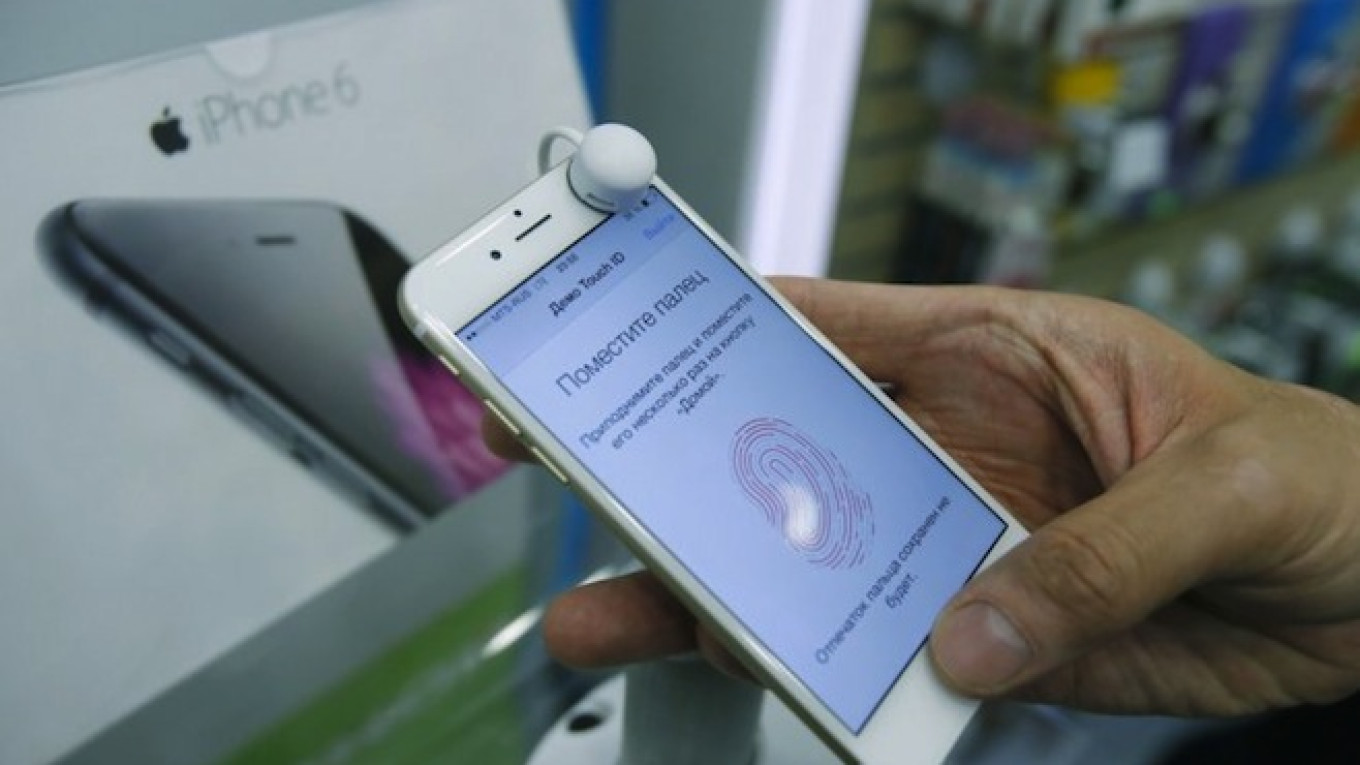Prices on expensive imported items, from Apple laptops to Gucci bags, are suddenly lower in Russia than in the West as ruble-denominated retail prices hold steady despite the currency's free fall.
This is a surprising, if temporary, reversal for Russian consumers. Foreign goods have as a rule been more expensive in Russia than the West, such that many upper-class Russians have taken to buying their electronics and high-fashion items on trips abroad.
Now that has all been tipped upside down — at least for the moment. At re:Store, an official Apple retailer in Moscow, the prices of computers and other electronics have yet to be adjusted to the new economic reality.
Buying in Russia rather than nearby Finland, shoppers on Tuesday stood to save nearly 25 percent on Apple's newly released iPhone 6, a popular item at re:Store. The opening price at a location in Moscow's GUM shopping mall on Red Square was 31,990 rubles ($700). In Finland, iPhone 6 prices start at 700 euros ($870).
Price differences were less drastic on other products, but still tempting. A 15.5-inch, 512-gigabyte MacBook Pro with retina display sold for 109,990 rubles ($2,369) in GUM, more than 5 percent less than the same model in the U.S.
The ruble has fallen about 40 percent to the dollar since January, hit hard by the one-two punch of U.S. and EU sanctions on Russia's banking and energy sectors over Moscow's hand in the Ukraine crisis and oil prices that fell to a four-year low on Tuesday.
After hitting the historic low of 48.64 against the dollar and more than 60 to the euro on Friday, the ruble firmed slightly Monday following news that the Central Bank had abandoned the ruble's floating corridor and would intervene on currency markets only in the event of threats to Russia's financial stability.
But the beleaguered currency, which closed Tuesday at 46.52 rubles to the dollar, is still far from recovering to its pre-October levels.
In the meantime, Russian retailers that sell imported goods are being forced to reevaluate their prices.
Prices at re:Store's locations on Tuesday had not been increased yet, as most in-store merchandise was bought about three weeks ago, when the ruble was hovering at about 40 to the dollar. "As long as the procurement price doesn't change, the retail price will stay the sam?µ," said Lyudmila Semushina, a spokeswoman for re:Store.
But if distributors raise their prices, as will surely happen given the ruble's collapse, the cost of re:Store's goods will be adjusted "immediately," Semushina said.
Sales are up at re:Store, she said, but the boom could just as well be thanks to the release of new products like the iPhone 6 as to the ruble's fall.
Some brands have already recalculated their prices, including luxury fashion and leather goods maker Gucci, which directly controls two recently opened stores in Moscow and franchises in Moscow and several other cities across Russia.
At the two-story Gucci store in the GUM mall, a saleswoman said prices on some goods have risen by as much as 5,000 rubles ($106). A handful of bags and dresses have kept their old price, but the saleswoman didn't discount the possibility that Gucci will decide to adjust prices again.
While the devaluation may be a boon to brand-conscious buyers, it has played havoc with foreign retailers. In September, Finnish retail group Stockmann shuttered 16 Seppala fashion stores, citing the falling ruble as a factor in their decision. That same month, Maratex, which runs the Russian outlets of clothing stores Esprit, OVS and River Island, said it was closing all stores under those brands due to the ruble's slump.
Still, despite the Cold War rhetoric emanating from both sides over the Ukraine crisis, Western goods are still popular in Russia. Eager buyers bought nearly 2 million iPhones for a total of $1.3 billion over the first nine months of the year, news agency Bloomberg reported, citing research firm IDC.
Contact the author at s.skove@imedia.ru


